The meeting is organized by the Department of Romance studies and Classics at Stockholm University in the period 31 May - 2 June. 2017. Conference languages will be English, French and Spanish, but we also welcome presentations on negation in other languages. The theme Pragmatics of Negation has been the subject of two research panels at the International Pragmatic Association’s (IPRA) international conference (2011 and in 2013). The second panel resulted in a collective volume that will appear in the beginning of 2017 (Roitman (eds), forthcoming).
Negation is one of the uncontested language universals. It is among the most complex, phenomena of human languages. The structural expressions of negation and negative functions are connected to all language levels; it has been studied in different linguistic domains, in pragmatics not the least.
The pragmatics of negation, which is actually one of the most privileged areas for negation studies, involves how we use and interpret different forms of negation in communication. What meanings do forms of negation generate in different contexts? The conference will also promote studies on how negative meanings are created in specific contexts: what linguistic forms and figures, other than negation lexica, may generate negative meanings?
The theme of the conference relates back to the asymmetric postulate of negative sentences as non-equivalent to inverted assertions, but an operator that carries more complex structures, on a syntactical, lexical and semantic level. Arguments for negation being essentially different from assertions have been presented in studies on negation’s relation to negative polarity item, to quantifiers, to scalar words, on the unequal reference ability (of negations and assertions) and on the fact that the interpretation of negatives is a cognitively demanding process. Probably because of these mentioned factors, negation generally constitutes a marked item in discourse; negatives break with the expectations in the context and also hint a subjacent positive counterpart. Meanings of negations therefore gain from being analysed by taking into account criteria that go beyond the formal linguistic aspects of language and take into consideration the communicative situation and the interplay between the interlocutors involved in the interaction.
The focus of the conference will be on corpus driven studies where the connection is made between the use, meanings and forms of negation in relation to genre, in a broad sense of social and cultural activity. Here follows the axes of the conference:
1) Relation negative forms – negative functions in a genre perspective. Are they related to the text type and genre? One may for example expect initial negation (No, etc.) to be more common in interactive genres, and pre- or post verbal phrase negations to be more frequent in more formal with only one speaking subject.
2) Negation and figure of speech. How is negation linked to rhetorical devices as metaphors, litotes, irony, maxims, proverbs, etc.? Is negation a figure of speech in itself? Are there some language evolutionary aspects to be considered here?
3) Negation in political, media and constitutional discourse. Professionals in media, media training and academic writing generally propose a restrictive use of negations in order to produce clear, unambiguous and comprehensive texts. Can we say that negation is less suitable for straightforward communication? On what grounds?
4) Negation has, within French enunciation theories, been considered an operator in language that subdivides negative utterances into hierarchical organized strata creating multi-voiced “polyphonic” texts. Within Critical Discourse Analysis negation appears as one of heterogeneous linguistic entities that may represent and reflect power relations and real hierarchies in language. Fauconnier, within his theory on “mental spaces”, has described negation as “space opener” that creates and unifies two worlds in a meaning construction process. Givón postulates negative utterances to embrace a pragmatic presupposition. Can these perspectives – all dealing with the interference of a positive counterpart in negatives – complete each other?
5) Negation in language acquisition and cognitive aspects of processing and understanding negative utterances. Many language acquisition studies show that negation is acquired late because of its syntactic and cognitive complexity that may have implications on comprehension and interpretation. Do these findings have any impact on the didactics of language learning?
The deadline to submit abstracts is the 20th of January. To submit your abstract, please send it to this address:
pragmatics.negation@su.se Your abstract may be written in English, French and Spanish. Please ensure that the following information is included in the document:
Title of presentation
Theme
Your name
Your institution
Phone number
Email address
Summary (maximum 300 words)
References (Maximum five)
Important dates:
15 March: Participants send revised abstract according to template to
pragmatics.negation@su.se
1-30 April: Registration and payment at Konferensservice (see further information on website published in January)
31 May - 2 June: Days of conference
